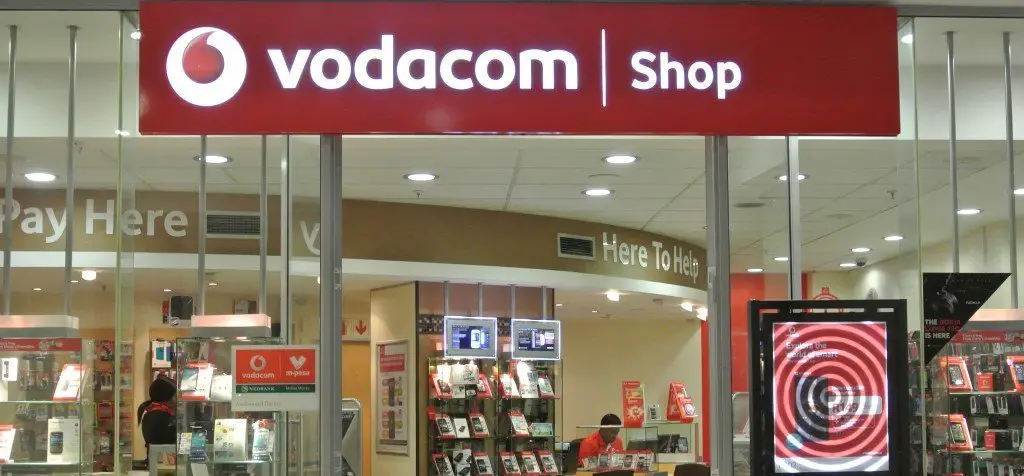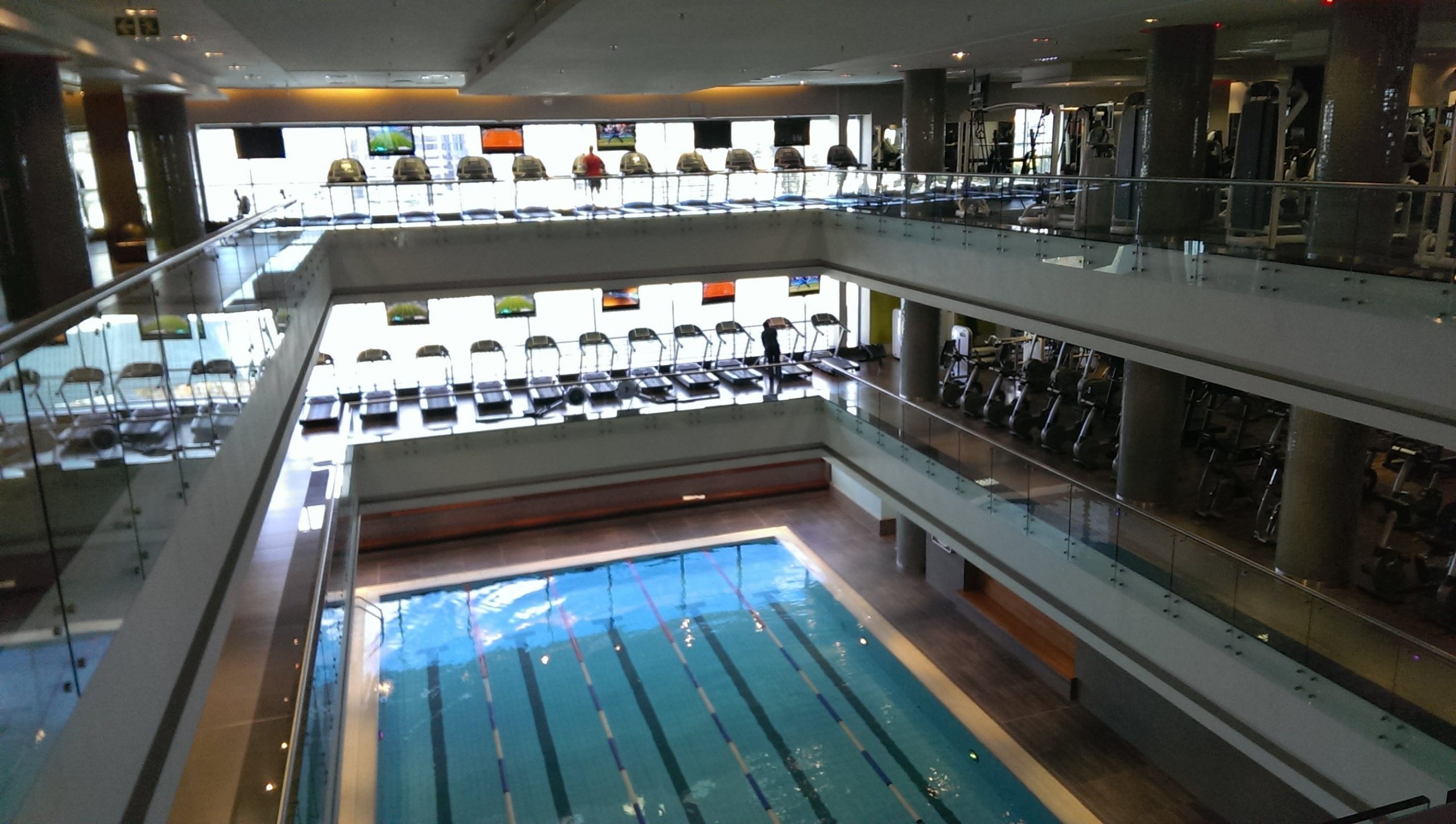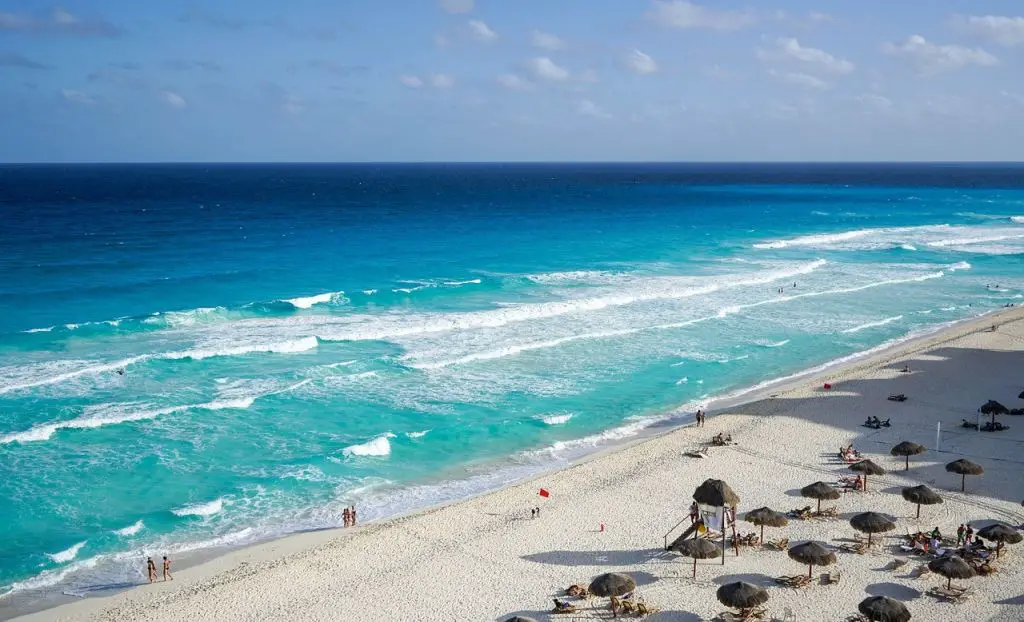Cellphones and internet. The two things that any individual in modern society cannot live without. We have all lost our cell phones before and that period of a few days you either feel a sense of liberation from all your notifications or you feel completely disconnected from the world. Probably the latter if I had to guess. It’s without a doubt that this was one of the things I researched heavily prior to moving to SA and I have to say that was probably the most useless research I’ve done.
Safe to say, mobile plans work much differently outside of America. Even in the UK it is quite different (and much cheaper) but SA has its own way of doing things. I’ve been here over two months now and have tried SA’s three major networks; MTN, Vodacom, and Cell-C, and have had the tedious process of having internet set up in my apartment with much wisdom to impart. This post is more useful for people that are actually thinking of living in SA, or if you just need a reason to appreciate what you have.
Setting up Internet in South Africa
This was without a doubt, the most tedious thing I’ve done so far in South Africa. The structure for internet here is quite lacking compared to the Western World. Internet is very expensive here and speeds are slow comparatively. It took me FOUR weeks to get internet into my apartment. There are essentially two options to getting internet in South Africa:
Pay as you go Dongles

Compared to the internet in America where we do not have to worry about usage caps, everything in South Africa is capped. If all you do is just browse the net, check Facebook, send some emails, then you likely don’t use much. However, if you’re into watching Youtube videos, streaming movies, etc, you might be paying a hefty bill using pay as you go internet.
Nevertheless, if you’re of the former variety, then getting a pay as you go internet dongle is the best way to go. These are simply little USB wifi dongles you must buy and then plugging it into your computer will give just that computer internet. Top it up with whatever data package you want. There are no contracts here. Just pay for whatever you use and recharge. I found 8ta and Afrihost to be the best for this service. For about R300 a month, 10GB of internet will be yours. You’ll also need a “dongle” that acts as a hotspot to use this service. Most companies provide LTE speed data at no extra cost, except for the cost of an LTE instead of 3G dongle (2x as expensive). These dongles are expensive as all electronics in SA are.
South Africa ADSL
Yep, ADSL, something that was popular in the US maybe 10 years ago, is the preferred internet of choice here. With speeds maxing out at 10 mbps, ADSL is as good as it gets here. If this is what you’re looking for. make sure to familiarize yourself with the company Telkom. They hold the monopoly in the country for home telephone lines. In order to get ADSL, you MUST have a home telephone line so you have no choice but to get one set up through Telkom (if you’re apartment doesn’t already have it set up).
This of course will cost you money, about 170R a month, but there’s no other choice if you want ADSL. Once you get this shit set up (took me a week), you can then either get ADSL service from Telkom, which all external advice has told me to stay far away, or another ADSL provider, like Afrihost or MWeb. I ended up going with Afrihost upon the recommendations of coworkers and found this company to have the best prices. Like any internet service, you are able to pick the speed you want, higher speeds obviously costing more, and whether you want an uncapped or capped package, with uncapped obviously commanding a large premium.
In the end, we opted for ADSL and paid about R850 total for our internet. This includes the service from Afrihost (100GB package), and the phone line from Telkom.
Netflix and Streaming Services in South Africa

Unfortunately, most streaming services that I enjoyed back home are not available in SA. So if you’re an avid user of Spotify, Netflix, Hulu, etc., it will be tough sledding in South Africa as none of these are supported. Nevertheless, all is not lost and there are ways and alternatives to these streaming services. The main alternative that works in SA is Google Music. It functions exactly like Spotify where you can find any music you want, and you can store them locally so you can play them without using a connection. It’s lacking in finding playlists that other people share (I loved this about Spotify as it made it easy to discover new music) but it is about as close as it gets to Spotify. It’s 8$ a month but very much worth it if you can’t live without Spotify.
Netflix in South Africa
As for Netflix and other video streaming services, there are no alternatives that I know of that work here. To get these working, you must get a service that scrambles your IP address to make it seem like you live somewhere where these services are not blocked.
Once you get your IP sorted out, you’ll need something to play it back on your TV. Apple TV works well in this country, but Google’s new Chromecast is even better in my opinion. It works with Android and Apple products and you can literally just stream anything from your PC, Mac, phone and tablet to the TV. Apple TV is very limiting and requries you to have apple products whereas the Chromecast does not. It is also 35$ compared to 100$ with Apple TV.
Watching American Sports in South Africa

Oh my, this may be one of the toughest things to deal with moving to a foreign country six hours, watching my favorite American sports. One of my favorite sports, American football, is not only disliked here (Rugby is king), but is impossible to watch. ESPN, at least its online version, is available in South Africa. The only issue remains the time difference. Being 6-7 hours ahead of the east coast means watching sports in the early hours of the morning. Thankfully, the internet speeds are fast enough to provide a decent stream most of the time.
If you’re wiling to put in the effort, then make sure you have First Row bookmarked on your computer. This site has saved me on numerous occasions when I need to have my sports fix. Quality is mostly mediocre but it is acceptable and the best you’ll get. Streaming First Row from your computer onto your Google Chromecast will get your favorite sports onto your TV, however the quality will be pretty shit and certainly not the HD you’re used to. However, this may be as good as it’ll get for anyone willing to stay up to the wee hours of the morning.
Mobile Phones Around the World

Just to clarify things, America has one of the best mobile networks in the world. It is also one of the most expensive. Let’s just say everyone’s using smartphones, which is the case these days, a standard phone plan with Verizon that has standard minutes/SMS and 2GB of data will run you about 100$/month after taxes are included. In addition, if you’re going for a nice shiny new iphone, galaxy s4 or HTC one, you’re shelling out another 200$ for the phone on a 2 year contract. This is in fact very expensive compared to other countries I’ve seen.
In the UK, I saw plans with unlimited talk/text/data for 35 pounds a month and this includes the phone. Nevertheless, the US has some of the most advanced infrastructure that’s only bested by certain Asian countries. 4G has been available for over two years now and it is the standard. With speeds up to 30 megabits/second, it’s really unnecessary because the majority of people will never need these speeds especially with how data capped networks like AT&T and Verizon are, you’ll never get to take full advantage of the speed unless you’re willing to pay for it. Sprint still offers unlimited data but it’s only a matter of time before that goes away too. So while us Americans have better, more reliable networks, we do pay a lot. It never occurred to me that we pay ridiculous amounts for mobile phones until I saw what other countries worked with.
The Verizon Problem
If you’re on Verizon Wireless, do not have a world phone, and are moving to Joburg (or anywhere else in the world for that matter), I have some bad news for you. Your phone will NOT work in SA. Even if you get it unlocked, it is still worthless because Verizon runs on CDMA radios which are incompatible with GSM radios which every network in SA runs on. Your best bet is to sell your phone for whatever money you can get for it, and buy an unlocked phone. I had Verizon in the states and realized this when I was in London for two months and could not use my phone anywhere.
South Africa’s Mobile Providers
If you’re planning on moving to South Africa, prepare for potential headaches when dealing with mobile companies. The country is rapidly growing but the technology has not grown at the same pace. Data plans are very expensive even for an American that I don’t know how the average South African does it. Unlimited plans are unheard of here unless you’re willing to pay upwards of R2000 a month. There are four main mobile providers; MTN, Vodacom, Cell-C and 8ta, the former three that I have tried.
The networks here aren’t actually as bad as I thought they would be. MTN, Vodacom, and Cell-C all have HSPA+ compatible networks and that is fast enough to do most things you need except maybe stream HD movies (not that you’ll be able to afford the data to do so).
MTN (Mobile Telephone Network)
MTN is most similar to America’s AT&T if I had to pick a carrier to compare to. The network is fast, stable, and prices are reasonable. I had their service for almost a month and can’t complain. I did speedtests while I was on the network and could reach speeds of up to 4 mbps which is plenty fast. The serve was always steady and I really had no complaints about the network.
Vodacom
This network would represent Verizon the closest. It is the largest network and the most expensive network. However, the service is absolutely on point. It was faster than MTN and I had HSPA+ service at all times. MTN would frequently fluctuate between 3G and HSPA but Vodacom never gave me any problems. Even when I was out in the boonies at a private game reserve, I had service everywhere.
Cell-C
I was warned by many people to stay away from this network. Cell-C is the new kid on the block. With cheaper rates but questionable service, if I had to pick a comparison to an American network, I’d throw it in somewhere between Sprint and T-Mobile. The company definitely offers the cheapest rates of the three but the service is more questionable. It is not as bad as people make it out to be but the service does fluctuate frequently and will kick me off HSPA and onto 3G for awhile, then back onto HSPA, and sometimes even back down to 2G for a few seconds. It has nothing to do with your location but I think the network is just so congested from people switching to Cell-C looking for cheaper rates that they can’t keep up. Nevertheless, unless you’re constantly on your phone doing data intensive things, the switch between HSPA and 3G shouldn’t bother you too much.
Mobile Pre-Paid vs Contracts
Cell phone contracts can get very confusing in South Africa. The main thing to understand is that unlimited contracts tend to be very expensive, upwards of R2,500/month. Coming from the states, where most plans are “unlimited”, I never bothered to monitor my usage because I was already paying for it. However, because I just paid one fee, I was paying for stuff I didn’t really need, like actual telephone calls and text messaging.
Pre-paid plans
The one thing I do like about pre-paid mobile is they let me choose exactly what I’m spending my money on. Turns out, almost all my cellular usage is through data. I’ve long forgone old school telephone calls. No one texts in South Africa as people prefer data-orientated services like Whatsapp and Facebook Messenger (largely because texts cost so much money).
Prepaid plans are simple to set up on all of South Africa’s mobile networks. Simply load “airtime” as they call it, which is just money. Airtime can be purchased conveniently at grocery and convenience stores. After purchasing airtime, you can then purchase data packages in various increments. Data is not cheap, with 1gb going for R150-2000 depending on your carrier. For actual phone calls and texts, your airtime will be deducted according to whatever rates are charged (usually R1-2/minute). I actually quite enjoy using method because it allows me to control exactly what I want to spend money on. Turns out, I don’t spend money on much. Because data is unlimited, I’ve learned to control my data usage, specifically to save my data-intensive activities for when I have wifi.
Every month, I use about 1gb of data and seldom make phone calls. My total phone bill comes out to be R50 – R100 per month! Because of this, I’d highly recommend buying an unlocked phone to take advantage of this!
Assuming you won’t be texting, and you call infrequently, the disparity between price per text and price per minute is small and pointless for conversation so let’s just compare data.
 |
 |
 |
|
| You already own any unlocked GSM Phone. | 100 MB – 49 R 250 MB – 99 R 1000 MB – 279 R |
100 MB – 29 R 250R – 79 R 1000 MB – 179 R |
500 MB – 75R 1000 MB – 149R 3000 MB – 399 R |
Contract plans.
The contracts that I’ve seen here are ridiculous. You get a brand new phone like the Galaxy S4 but you get a contract with like 200 minutes, 200 texts and 200MB of Data for 500R a month. 200 MB of data a month? Really? Unless you plan to browse the net never, this will get you by. I’ve compiled a list of on contract phone prices and what they offer. I chose the GS4 as an example because this is the highest tier of phone you can get so an iphone 5, galaxy note, or HTC one phone will be the same prices. Obviously, any lower tier phone will have cheaper pricing.
 |
 |
 |
|
Galaxy S4 |
419R / month 75 Min, 150 SMS, 75MB Data499R / month 120 Min, 240 SMS, 150 MB Data650R / Month 250 Min, 500 SMS, 250 MB DataIf you want to buy extra data, you can pay whenever you need it, 279R for 1 GB of Data |
399R / Month 200R Airtime (means 200R worth of minutes at whatever MTN’s rate is per min), 200 SMS, 200 MB Data499R / Month 350R Airtime, 350 SMS, 350 MB599R / Month 50R Airtime, 500 SMS, 500 MBAn extra gig of data is 149R a month |
399R / Month 100 Min, 100 SMS, 1000 MB Data499R / Month 200 Min, 200 SMS, 1000 MB645R / Month 400 Min, 400 SMS, 1000 MBAn extra gig of data is 149R a month |
From this table, it is pretty clear that Cell-C has the best rates, especially on data. In this day and age, data is the most important thing to have because you’re probably ever going to use 400 minutes a month and 400 SMS is not enough to fully engage yourself in texting in a month.
You’re Going to Use WhatsApp
 If you are anti data messaging apps and all about old school texting, prepare to be in for a culture shock. NO ONE here texts. I think texting probably died with the first iteration of Whatsapp. I can really appreciate this. The fact that I paid 20$/month just to text people in the states is ridiculous. 1 text is 160 bytes and even if you sent 10000 texts a month, that equates to 1.6 megs of data which is nothing for the carrier. They bank pure cash on the fact that people still pay for texting plans and we don’t know any better but to just pay it.
If you are anti data messaging apps and all about old school texting, prepare to be in for a culture shock. NO ONE here texts. I think texting probably died with the first iteration of Whatsapp. I can really appreciate this. The fact that I paid 20$/month just to text people in the states is ridiculous. 1 text is 160 bytes and even if you sent 10000 texts a month, that equates to 1.6 megs of data which is nothing for the carrier. They bank pure cash on the fact that people still pay for texting plans and we don’t know any better but to just pay it.
Unfortunately, the texting plans that come with a contract here include maybe 200-300 texts which is nothing. If you are using a pay as you go plan, a text is like the equivalent of 25 cents USD to send or receive. From the conversations I’ve had with everyone I’ve met, WhatsApp seems to the unofficial preferred method of contact here. Because how terrible texting plans are, people no longer text and in fact, if I actually send a text to someone, they’d get upset and tell me to Whatsapp them instead.
I’m Moving to SA, what cell provider should I get?
Obviously everyone’s going to have different needs and wants but if you’re similar in mobile mindset as me, mainly that all you really care about is data (because who the hell would you be calling in SA anyway?) so you can browse the net, chat with friends back home, and upload pics to your instagram and facebook, then you should do the following.
- Get an unlocked phone or get your current phone unlocked (unless you’re on Verizon, then you’re f’d). Trust me, the money you save will be worth it
- For the first 3 months, because you can’t sign a contract, get pay as you go plans.
- After 3 months are up, sign a SIM only contract (just data). Add X amount of Rand every month for your phone calls.
- Why is this better? Some simple calculations:
- Vodacom’s 500 mb/month sim only contract is 39R a month. Let’s say you are not much of a talker and you only use another 20R in airtime a month. This is 60R a month for your phone bill. 60R x 24months = 1440R for two years. With an unlocked phone purchased from abroad for say 600$ (6000R), that equates to 7440R over the course of two years for all things cell phone related.
- If you bought a high end phone on contract in SA, you’re looking at about 500R/month x 24 = 12,000R! That’s almost 5000R in savings over 24 months
Using Vodacom
I’ve managed to sign a two year data only contract on Vodacom, after getting my three months of bank statements, for a measly 39R/month for 500mb. Because I have wireless at work, home, and at the gym, I rarely use data anymore. I top up about 15-20R a month for all my calls and texts (which are almost none) and that is enough because in SA, you actually do not get charged at all for calls received. This adds to be about 50-60R a month which is like 5-6$ a month for my cell phone plan. And here I thought I was going to get reamed on my cell phone bill while in SA.












